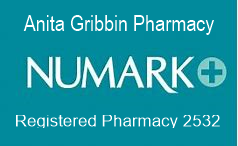Homeopathic Appointment
What is Homeopathy?
Homeopathy is a natural form of medicine used by over 200 million people worldwide for both acute and chronic conditions. It is based on the principle of ‘like cures like’. In other words, a substance taken in small amounts will cure the same symptoms it causes if it were taken in large amounts. For example, coffee usually keeps people awake, and so when used homoeopathically, it may help you sleep. Homeopathy first became popular through the use of e.g. Arnica which is often used for bruising.
Is Homeopathy Safe?
Homeopathic medicines are safe to use as they rarely cause side-effects. This means when used appropriately under the guidance of a qualified homeopath they can be taken by people of all ages, including babies, children and pregnant or breastfeeding women.
What can homeopathy be used for?
Homeopathic medicines can be used for a wide range of conditions including first aid, minor ailments and more complex health conditions.
Symptoms are viewed in homeopathy as a sign of disease – the body’s attempt to heal itself. Homeopathy does not seek to remove or suppress symptoms. The goal of homeopathy is to recognise and remove the underlying cause of these symptoms. The whole person is taken into account rather than managing symptoms alone.
What to expect during a consultation?
Homeopathy is holistic medicine which means each patient is treated as a unique individual and the mind, body and emotions are all integrated and are considered in the management of your symptoms. Questions may be asked about your lifestyle, eating habits, preferences, temperament, personality, sleep patterns and medical history. This is to gain a complete picture of your health and any possible reasons for what has triggered symptoms. A homeopathic medicine will be chosen based on this information, not just your symptoms.
As homeopathy is so individualised, five patients attending for headaches, may receive five different homeopathic medicines. The homeopathic medicine is used to stimulate the body’s own healing ability.
As a guide, your first appointment could take up to an hour. A follow-up visit is usually needed to check the medicine is working as expected. Follow-up appointments typically last 30 minutes.
If a homeopathic student is present, you may be asked for permission for them to observe your consultation. Occasionally filming of consultations for teaching purposes is carried out. You may also be asked to sign a confidentiality contract.
Homeopathy may also be prescribed acutely following a shorter consultation and will be dispensed immediately following consultation. Depending on the complexity of the presenting condition, this may be followed up with a longer consultation.
What to expect between appointments?
At the end of the consultation your homeopathic practitioner may take some time to work out your prescription. They will contact you to arrange delivery or collection of your medicine, if you don’t receive this on the same day. They will advise you how often to take the medicine. Homeopathy is usually taken in tablet or pillule form, but is also available in liquid and powder form. Homeopathic gels or cream may also be prescribed for some conditions.
What if I am taking conventional medicine already?
Homeopathy is complementary medicine which means it can be taken alongside conventional medicine. You should remain on your current conventional medicines.
Who carries out the consultation?
Our Homeopathic pharmacists have completed training at The Royal London Homeopathic Hospital. They have dual training in both conventional pharmacy and in homeopathic medicine. Some have also travelled extensively to attend research conferences in homeopathy, experience homeopathy teaching and visit homeopathic hospitals around the world.
One of the many benefits of attending a healthcare professional, who is trained in homeopathy, is that he will know when it is appropriate to use homeopathic medicine, conventional medicine or a combination of both. The most effective and appropriate treatment will be discussed and individually tailored just for you.
Our pharmacists are registered with the Pharmaceutical Society and the Faculty of Homeopathy. The Faculty of Homeopathy was founded in 1844 and was incorporated by an Act of Parliament in 1950. The Faculty of Homeopathy is the registering body for healthcare professionals who use homeopathy.



